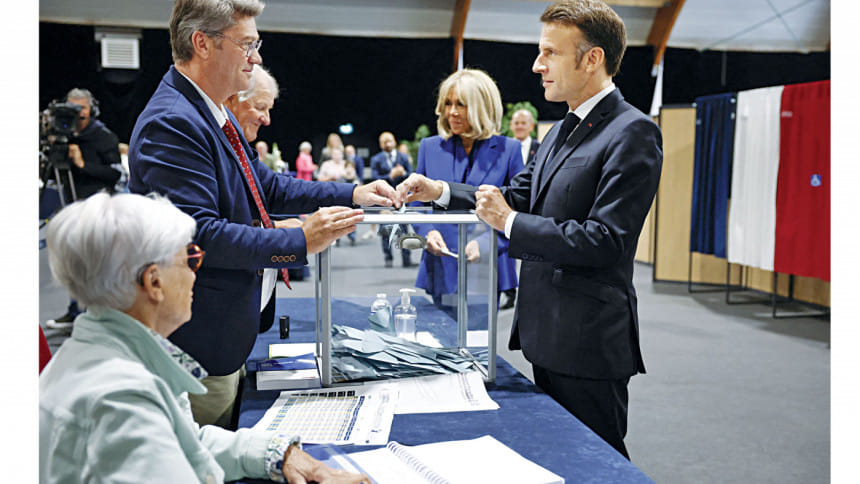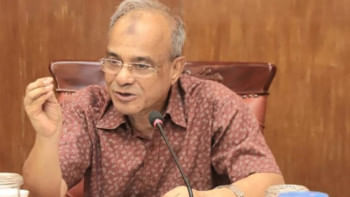Voter turnout high in French election

French voters turned out in force for the second round of a parliamentary election yesterday that could see the far-right National Rally (RN) emerge as the strongest party, severely denting President Emmanuel Macron's authority.
Turnout stood at 26.3 percent by around noon, up from 18.99 percent during the second round of voting in 2022, the Interior Ministry said. It was the highest midday turnout level since 1981, pollster Harris Interactive and Ipsos said, illustrating strong public interest in an election that has polarised political views.
The latest opinion polls have forecast the RN to win the most seats in the National Assembly, but predicted it may fall short of an absolute majority. A hung parliament would herald a prolonged period of instability and policy deadlock in the euro zone's second-biggest economy.
If the nationalist, eurosceptic RN did secure a majority, it would usher in France's first far-right government since World War Two and send shockwaves through the European Union at a time when populist parties are strengthening support across the continent.
Voting was due to close at 6:00 pm in towns and small cities and 8:00 pm in bigger cities. Pollsters was due to deliver initial projections based on early counts from a sample of voting stations at 8:00 pm.
Macron called the snap election after his ticket was trounced by the RN in European Parliament elections last month, a move apparently aimed at wrong-footing his rivals in a legislative election. The vote is pitting a centrist government against opposition movements from the left and far right.
"The country is facing three radically opposed views of society," said Olivier Grisal, a retiree, as he walked towards his polling site in the middle-class town of Conflans Sainte-Honorine, west of Paris, with his wife.
Opinion polls forecast Marine Le Pen's RN will emerge the dominant force as voters punish Macron over a cost of living crisis and being out of touch with the hardships people face.
However, the RN is seen failing to reach the 289-seat target that would outright hand Le Pen's 28-year-old protégé Jordan Bardella the prime minister's job with a working majority.
The far right's projected margin of victory has narrowed since Macron's centrist Together alliance and the left-wing New Popular Front (NPF) pulled scores of candidates from three-way races in the second round in a bid to unify the anti-RN vote.
"France is on the cliff-edge and we don't know if we're going to jump," Raphael Glucksmann, a member of the European Parliament who led France's leftist ticket in last month's European vote, told France Inter radio last week.
Political violence surged during the three-week campaign. Interior Minister Gerald Darmanin has said authorities recorded more than 50 physical assaults on candidates and campaigners.
Some luxury boutiques along the Champs Elysees boulevard, including the Louis Vuitton store, barricaded windows and Darmanin said he was deploying 30,000 police amid concerns of violent protests should the far right win.
A longtime pariah for many due to its history of racism and antisemitism, the RN has broadened its support beyond its traditional base along the Mediterranean coast and the de-industrialised north, tapping into voter anger at Macron over straitened household budgets, security, and immigration worries.

 For all latest news, follow The Daily Star's Google News channel.
For all latest news, follow The Daily Star's Google News channel. 



Comments